Tommy Tuberville praises Huntsville’s National Children’s Advocacy Center
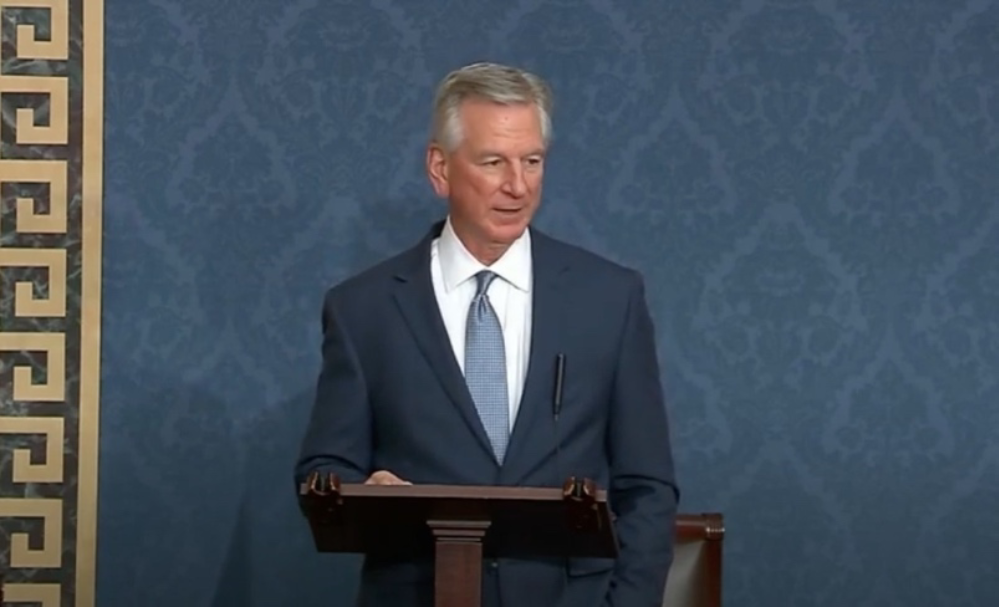
U.S. Senator Tommy Tuberville on Monday highlighted the important work and world-class counseling services led by the National Children’s Advocacy Center (NCAC) in Huntsville. Sen. Tuberville visited the NCAC last week and was impressed by what he learned during his briefing and tour of the campus from Executive Director Chris Newlin and members of his team. “The National Children’s Advocacy Center in Huntsville is a global leader in services, investigations, and counseling for children who suffer physical and sexual abuse,” Tuberville said in a speech on the floor of the Senate. “The center’s work is important, and I’m proud to share that work today.” “Studies show that there are several long-term effects of child abuse,” Tuberville said. “These include delayed brain development, lower educational success, and limited career opportunities. Victims are also more likely to suffer from future abuse, drug usage, and medical complications. Additionally, they are less likely to own cars, buy homes, [and] engage in business, making them less likely to be able to support a family in the future.” “Founded in 1985, the National Children’s Advocacy Center — also called the NCAC — is stepping up to save lives and offer hope to thousands and thousands of young people,” Tuberville continued. The NCAC in Huntsville has established more than 1,000 children’s advocacy centers operating in the United States and in 41 countries across the globe. Their work serves thousands and thousands of kids every year.” “The center’s reach does not end in Alabama — it has expanded across the country and across the world,” Tuberville said. “In 2021, over 30,000 child abuse professionals from 50 states and 17 countries received NCAC training, and more than 400,000 children were served just in 2021. Alabama’s network of children’s advocacy centers now includes 47 different locations that have conducted tens of thousands of counseling sessions each year. And thanks to their work, more abusers have been brought to justice. Communities with Children’s Advocacy Centers have seen a 196% increase in felony prosecutions of child sexual abuse.” “During my visit, the center’s Executive Director Chris Newlin shared that one in ten American children today will be victims of abuse before the age of 18,” Tuberville said. “This is horrific, it’s unacceptable, and it’s embarrassing to our country.” “Nearly 600,000 kids in the United States were abused in 2021,” Tuberville stated. “Child abuse cases in Alabama have increased throughout the years, with more than 12,000 victims reported in 2018, costing the state of Alabama $3.7 billion dollars.” The most common form of abuse is neglect. The NCAC is holding its International Symposium on Child Abuse in Huntsville on March 20 to 23. Nineteen countries will send representatives. Former NASA astronaut Mike Massimino will be the keynote speaker. Tuberville is in his first term representing Alabama in the United States Senate. Tuberville spent 40 years as a teacher and a coach before successfully running for the Senate in 2020 – defeating incumbent Sen. Doug Jones in a landslide victory for the GOP – even though the national election that year favored Democrats. Tuberville serves on the Senate Armed Services, Agriculture, Veterans Affairs, and HELP Committees. To connect with the author of this story or to comment, email brandonmreporter@gmail.com.
Katie Britt and Tommy Tuberville join bipartisan group to support rural hospitals

On Friday, U.S. Senators Katie Britt and Tommy Tuberville joined a bipartisan group of fourteen Senators urging the extension of a policy that is helping rural hospitals in states like Alabama continue to deliver quality care. The two Alabama Republicans joined in a letter to Centers for Medicare and Medicaid Services (CMS) Administrator Chiquita Brooks-LaSure formally requesting a four-year extension of the Low Wage Index Hospital Policy, which allows hospitals in rural areas to compete for and retain high-quality staff by increasing reimbursements to hospitals in rural areas with lower overall wages. Without action, Medicare payments to these hospitals will reduce after September 30, 2023. Sen. Britt is a member of the subcommittee for Labor, Health and Human Services, Education, and Related Agencies of the Senate Committee on Appropriations. “Our rural families and communities depend on the medical services and potentially life-saving treatments that local hospitals provide,” said Sen. Britt. “Every Alabamian deserves access to quality care and the opportunity to thrive in safe, strong communities – no matter their zip code.” The four-year AWI adjustment by CMS for bottom quartile hospitals was first passed by the Trump administration in August 2019. Then, Sens. Richard Shelby and Doug Jones represented Alabama in the Senate. “For two decades, Alabama has been fighting the unfair Medicare reimbursements and today receives a rate that is just 67 percent of the national average,” Sen. Jones explained in 2019. “This rule adjustment will bring balance to Medicare reimbursement for Alabama, particularly our rural hospitals and hospitals across the country,” explained then-Sen. Shelby. “For years, I’ve been working with Alabama’s hospitals and the delegation to advocate for increased Medicare reimbursements for Alabama’s hospitals, which are currently reimbursed at the lowest rates in the country,” Congresswoman Terri Sewell stated when the rule was passed. “Today’s announcement is great news for Alabama’s hospitals, especially those in rural areas of the state where every dollar counts. With over 88 percent of rural Alabama hospitals operating in the red, it is critical that we do everything we can to help our hospitals provide the services needed to keep Alabamians healthy. Recalculating the way Medicare reimburses Alabama hospitals is a crucial step in achieving that goal.” “Unfortunately, due to disruptions in the marketplace caused by the COVID-19 pandemic, we have not had the opportunity to see the true impact of the Low Wage Index Hospital Policy envisioned by CMS,” the Senators wrote in their letter. “Extending the Low Wage Index Hospital Policy for four additional years will allow hospitals and the agency to better understand the policy’s true impact in a more normal environment.” Senators Britt and Tuberville were joined by Senators Mark Warner (D-Virginia), Marsha Blackburn (R-Tennessee), Tim Kaine (D-Virginia), Joe Manchin (D-West Virginia), John Boozman (R-Arkansas), Shelley Moore Capito (R-West Virginia), Roger Wicker (R-Mississippi), Cindy Hyde-Smith (R-Mississippi), Bill Hagerty (R-Tennessee), James Lankford (R-Oklahoma), Tim Scott (R-South Carolina), and Tom Cotton (R-Arkansas). Without a renewal and extension of the rule, CMS will revert back to compensating rural hospitals at 60 to 75% of the rates as hospitals in many major metropolitan areas based on the assumption that the cost of living and, thus, wages are less in the rural areas. The difficulty with that theory is that there is an intense nationwide competition for medical professionals who all go to the same medical and nursing schools. Rural hospitals already struggle to hire competent medical professionals due to the small rural populations. This means fewer patients seeking care, particularly specialized care, than in a major city hospital. If Medicare and Medicaid reimburse those hospitals for significantly less than the major hospitals will, then attracting and retaining staff at the rural hospitals becomes problematic. To connect with the author of this story or to comment, email brandonmreporter@gmail.com.
Tommy Tuberville to be Ranking Member of Senate Agriculture Rural Development and Energy Subcommittee
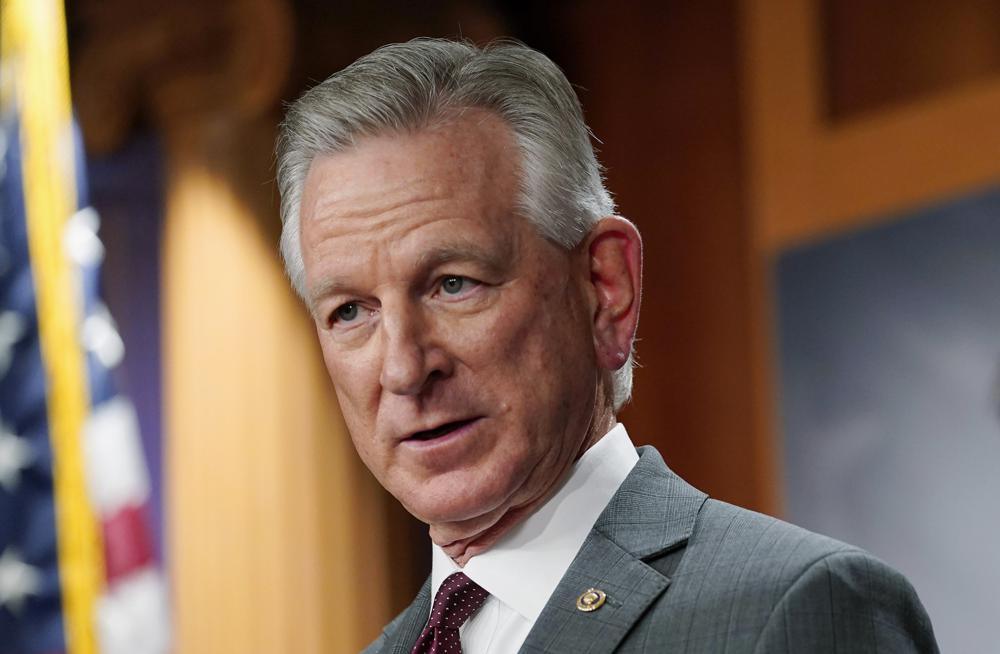
On Friday, U.S. Senator Tommy Tuberville announced that he will serve as the Ranking Member of the Rural Development and Energy Subcommittee on the U.S. Senate Committee on Agriculture, Nutrition, and Forestry. As the lead Republican on this subcommittee, Senator Tuberville will be able to build on his work to strengthen Alabama’s rural communities and expand access to broadband. “As Alabama’s voice on the Senate Agriculture Committee, I’m honored to be the leading Republican on the Rural Development and Energy Subcommittee, where I will keep working to strengthen the communities that are home to our farms and production facilities,” Tuberville stated. As we draft the 2023 Farm Bill, I look forward to championing resources like broadband, energy, and water programs so that our rural areas are well-equipped to support Alabama’s diverse agriculture industry and our national food security.” Tuberville was also appointed to serve on two other subcommittees that are crucial to Alabama farm families: Commodities, Risk Management, and Trade, and Food and Nutrition, Specialty Crops, Organics, and Research. “The past few years have shown us the importance of food security interests to our national security,” Tuberville said. “People across America depend on Alabama’s farmers and producers to ensure they can put food on the table and provide for their families. We help lead the way in many areas, such as catfish, peanuts, and broiler chicken production, and the best way to continue this is through supporting our family farms and rich agriculture diversity. These subcommittees will best position me to continue advocating for Alabama’s agricultural interests so that our state remains a leader in national food production for generations to come.” The Senate Subcommittee on Rural Development and Energy is tasked with overseeing the many programs in USDA’s Rural Development mission area, including housing, electric and water utilities, loans, and renewable energy. As Ranking Member on this subcommittee, Sen. Tuberville will be positioned to work on these Alabama-specific issues: Tuberville’s position on this subcommittee will enable him to work on issues specific to Alabama’s agriculture industry, including: The Senate Subcommittee on Nutrition, Specialty Crops, and Agricultural Research is tasked with overseeing programs regarding food and nutrition assistance, school meals, specialty crops, and research. Tuberville’s position on this subcommittee will enable him to work on issues specific to Alabama’s agriculture industry, including: Tuberville is a member of the Senate Armed Services, Agriculture, Veterans Affairs, and HELP Committees. Tuberville was elected in 2020, defeating incumbent Sen. Doug Jones in a landslide. Prior to running for the Senate, his first elected office, Tuberville spent forty years as a teacher and a coach. His coaching career included tenures as the head football coach at Ole Miss, Auburn, Texas Tech, and Cincinnati. To connect with the author of this story or to comment, email brandonmreporter@gmail.com.
Tommy Tuberville and Lance Gooden introduce the Stop Settlement Slush Funds Act

In advance of the Biden administration’s decision to finalize a rule that would revive the Obama-era policy of directing corporate settlement funds to third-party organizations, U.S. Senator Tommy Tuberville and Congressman Lance Gooden are reintroducing their Stop Settlement Slush Funds Act. The bill would prohibit the Department of Justice (DOJ) from allowing defendants to enter quid-pro-quo agreements that entail donations to third-party groups in exchange for reduced fines and tax deductions. This legislation would ensure that any settlements go only to the actual victims, injured parties in the dispute, or the U.S. Treasury. “The practice of funneling settlement dollars to political activists is an unacceptable abuse of the system,” said Sen. Tuberville in a statement. “If money is owed following a settlement agreement, every cent of that payout should go to those directly impacted by the defendants, or back to the Treasury. Public servants should not be allowed to use their influence to line the pockets of individuals who share the political views of the current administration.” Tuberville wrote on Twitter, “The Biden admin shouldn’t use the justice system to bankroll their partisan agenda. I introduced the Stop Settlement Slush Funds Act to stop DOJ from directing corporate settlement dollars to third-party, left-wing organizations instead of victims or @USTreasury.” Tuberville introduced this legislation in the last Congress. “Directing legal settlements to third-party groups is nothing short of legal extortion to fund the Biden Administration’s partisan agenda,” said Rep. Gooden. “Congress can no longer allow the Executive Branch to circumvent our Constitutional power of the purse to fund their activist pet projects and must pass my legislation to end this corrupt practice.” The Stop Settlement Slush Funds Act is endorsed by the National Taxpayers Union, Americans for Tax Reform, FreedomWorks, and Americans for Prosperity. Grover Norquist is the President of Americans for Tax Reform. “For too long, the Department of Justice has been misallocating settlement funds from civil suits to provide cash injections to political allies,” said Norquist. “This gross politicization of a government agency should be put to a stop immediately. I am proud to support Rep. Gooden’s bill to codify protections against the DOJ or any government official abusing their power to benefit special interest groups.” Adam Brandon, President of FreedomWorks, applauded the legislation. “The Stop Settlement Slush Funds Act would ensure that settlement dollars go to victims’ funds or to the general fund of the Treasury to be appropriated by Congress, which, as Article I of the Constitution requires, holds the power of the purse over funds spent by the federal government,” said Brandon. “It’s critical that Congress reins in the executive branch and assert its Article I powers, the Stop Settlement Slush Funds Act is a crucial part of this effort.” Alex Milliken, Policy and Government Affairs Manager at the National Taxpayers Union, thanked Gooden and Tuberville. “NTU supports the Stop Settlement Slush Funds Act and applauds Congressman Gooden and Senator Tuberville for working together to protect taxpayers,” said Milliken. “The practice of diverting billions of settlement dollars out of the hands of victims and toward third-party groups is a dubious practice. Congress should act quickly to put a stop to this agency behavior and prevent the misuse of resources to promote partisan agendas.” The Stop Settlement Slush Funds Act would prohibit settling parties in a federal dispute from reducing their punishments by making “donations” to outside organizations. This was a common practice under President Barack Obama’s presidency. The Obama Justice Department almost routinely required settling parties to pay a portion of their settlement obligations, under the guise of “donations,” to outside groups of the Department’s choosing. Republicans claimed that most of those groups pushed a partisan agenda. Tuberville and Republicans claim that this practice turned federal settlements into “liberal slush funds.” President Donald Trump halted the practice when he was President. Proponents of this legislation argue that without it, the Biden DOJ is expected to finalize a rule allowing the practice to continue to bolster a progressive policy agenda. Original cosponsors in the U.S. Senate include Senators Thom Tillis (R-North Carolina), Tom Cotton (R-Arkansas), Rick Scott (R-Florida), and Cynthia Lummis (R-Wyoming). Congressman Gary Palmer is an original cosponsor of this legislation in the U.S. House of Representatives. Other Congress members cosponsoring this include Reps. Scott DesJarlais (R-Tennessee), Tom Tiffany (R-Wisconsin), John Moolenaar (R-Michigan), Blaine Luetkemeyer (R-Missouri), Scott Perry (R-Pennsylvania), Darrell Issa (R-California), Randy Weber (R-Texas), Andy Biggs (R-Arizona), Claudia Tenney (R-New York), Jake Ellzey (R-Texas), and Ben Cline (R-Virginia). Tuberville is in his first term in the Senate, having been elected in a landslide in 2020, unseating incumbent Sen. Doug Jones. Tuberville is a native of Arkansas who spent forty years teaching, coaching, and sports broadcasting. He and his wife live in Auburn. To connect with the author of this story or to comment, email brandonmreporter@gmail.com.
Tommy Tuberville supports expanding school choice opportunities during National School Choice Week
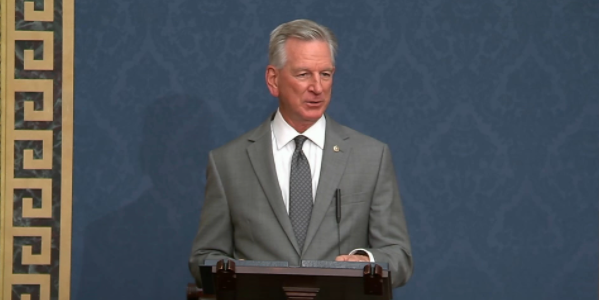
As National School Choice Week comes to a close, U.S. Senator Tommy Tuberville joined U.S. Senator Bill Cassidy and U.S. Representative Adrian Smith to introduce the Educational Choice for Children Act to expand educational opportunities for students by providing a donation incentive for individuals and businesses who fund scholarships for public and private K-12 education expenses. “There is no better cause than creating educational opportunities for our next generation of leaders,” Tuberville said in a press release. “Incentivizing greater investment in school choice will empower parents and students to make the decision best for them. I’m proud to support this legislation to ensure our students can achieve the brightest future possible.” “Parents deserve the right to make the best educational decision for their child, regardless of income,” said Sen. Cassidy. “Our bill empowers families to pick the school that best fits their children’s needs.” U.S. Senator Katie Britt also signed on as a co-sponsor of the legislation. “This National School Choice Week, let’s recommit to ensuring that every single child across Alabama and our nation has the opportunity to unlock the American Dream through a high-quality education,” said Sen. Britt earlier this week in support of expanded school choice. “No child’s zip code should determine their destiny. School choice empowers families with the freedom to make important decisions to help their children achieve their full potential and secure a bright future.” The Educational Choice for Children Act would: · Provide $10 billion in annual tax credits to be made available to taxpayers. Allotment of these credits to individuals would be administered by the Treasury Department. · Use a limited government approach with respect to federalism, thus avoiding mandates on states, localities, and school districts. · Include provisions that govern Scholarship Granting Organizations (SGOs), as SGOs are given the ability to determine the individual amount of scholarship awards. Numerous school choice advocacy groups endorsed the legislation, including the Invest in Education Coalition, American Federation for Children, U.S. Conference of Catholic Bishops, Heritage Action, Home School Legal Defense Association, Agudath Israel, Orthodox Union, Association of Christian Schools International, CAPE, Excel in Education, and former U.S. Secretary of Education Betsy DeVos. According to the Invest in Education Coalition, 49 million American children are currently in public schools. Only three percent of those children have a choice program in place so they can opt out of state-controlled education. Tuberville spent over forty years in education as a coach and teacher. Tuberville has been an outspoken advocate for expanding school choice opportunities. He is serving his first term as a U.S. Senator after unseating incumbent Doug Jones in the 2020 general election. To connect with the author of this story, or to comment, email brandonmreporter@gmail.com.
Alabama’s top ten stories in 2022

2022 is winding down. Now is a good time to look back on the year that was and remember the political news that impacted our lives here in Alabama. Katie Britt wins the Senate. Britt had never held a public office before, was not a self-made multi-millionaire with her own corporation, was not a war hero, and was not a household name. Yet the mom from Enterprise managed to put together a diverse band of supporters that included among its ranks both the rich and powerful and thousands of just everyday ordinary Alabama folks. Alabama does not change Senators very often. Richard Shelby, whom she replaces, spent the last 44 years in Congress. At age 40, Britt is young enough to potentially duplicate that feat. Republicans hold onto their supermajorities in the Alabama Legislature. The Alabama Legislature is nationally recognized as the most conservative legislature in the entire country. Republicans entered the 2022 election cycle with the daunting challenge of defending 77 seats in the Alabama House of Representatives and 27 seats in the Alabama Senate. Alabama voters showed that they liked what the legislature did in the last four years and will enter the new quadrennium with the same historic filibuster-proof majorities they had in the previous four years. Republicans in the legislature can work across the aisle in the spirit of bipartisan cooperation if they want to. They can also ram through whatever red-meat agenda items that the GOP wants. Alabama Democrats in the legislature can do little to stop them. Alabama prisons are still horrible. Alabama prisons are overcrowded, woefully understaffed, do a poor job of rehabilitating prisoners, and according to a report by the Department of Justice, are the most dangerous in the country. This has all been well documented. The only conclusion that is possible to reach is that the people of Alabama just don’t care how we treat our prisoners. The Bureau of Pardons and Paroles has been hesitant to release prisoners. The state has 70, 80, and even 100-year-old prisons housing far more prisoners than they were designed to hold. The state has had to suspend executions because of botched attempts in which the state failed in its efforts to kill the condemned man. The state is trying to hire more prison guards, and the Alabama Department of Corrections has begun work on building two new mega prisons in Elmore and Escambia Counties. Time will tell if these efforts will satisfy the federal government, which is suing the state because they believe our prisons are so wretched that incarceration in Alabama constitutes a “cruel and unusual punishment” in violation of the Eight Amendment of the Bill of Rights. Kay Ivey was re-elected as governor. Ivey entered 2022 as the oldest governor in the country and one of the most popular. Ivey was challenged by a self-made millionaire, a former governor’s son, successful businessmen, a mayor and former legislator, a prison guard and former county commissioner, and a conspiracy theorist preacher in the Republican primary. They all blasted Ivey’s tenure as governor and said they could do a better job. The voters ignored millions of dollars in negative ads, rumors about the governor’s health, and her refusal to debate, and Ivey won the GOP primary without a runoff. Ivey then faced a woefully underfunded Democrat, a Libertarian, and two write-in candidates. Seventeen people ran for governor in 2022, and Ivey coasted to re-election. The Alabama Democratic Party imploded. America has a two-party system. Democrats have a one-seat majority in the U.S. Senate, and Republicans have a slim majority in the U.S. House of Representatives. Democrats won the presidential election in 2020, and Republicans won in 2016. Either party could be in charge in 2024. The nation could not be more evenly divided – not so in Alabama. Every Republican nominee for a statewide office prevailed in Alabama’s 2022, and it was not even close. In fact, the Republican domination surprised no one as only one Democrat, Doug Jones in 2017, has won a statewide race since 2008. The Alabama Democratic Party (ADP) was hemorrhaging money so badly that the state director and most staff quit weeks before the election. ADP Chairman State Rep. Chris England announced leadership elections before the elections and that he was not running again. Randy Kelley, deposed with the blessing of the Democratic National Committee in a bizarre ADP power struggle in 2019 as vice chair, was elected Chairman of the ADP in August. The Joe Reed and Alabama Democratic Conference-supported Chairman found the party with no money, weak candidates, no donors, and no hope. The party was effectively steamrolled outside of majority-minority Black legislative districts. Alabama legislature passed permitless carry. Despite the best efforts of anti-gun groups and the Alabama Sheriffs Association, constitutional carry passed the Alabama Legislature in 2022. Every Alabamian who still has their gun rights will be able to carry their handguns concealed on their person or in their vehicle without purchasing a permit from their local sheriff starting Sunday, January 1. The concealed carry bill was the most controversial item to pass the legislature in 2022. State Rep. Shane Stringer and State Sen. Gerald Allen successfully carried that legislation to the finish line. Legal medical marijuana moved much closer to reality. The Alabama Medical Cannabis Commission passed rules and regulations for the new industry in 2022, and the deadline for persons to turn in an application to get a state of Alabama license to be a marijuana grower, processor, transporter, dispenser, or operate an integrated facility that does all of the above in house is on Friday, December 30. The Commission will award the licenses in June, and the first legally sold Alabama-raised marijuana will be available by late 2023. Financial strength prevailed in 2022. Unemployment is historically low, wages are rising, and the state is receiving record streams of tax money. In 2022 the state legislature passed record education trust fund and state general fund budgets for fiscal year 2023 and rolled hundreds of millions of dollars in surplus funds from fiscal year 2022 into FY2023. Not only is proration in the coming session not likely, but there is also the
DA drops charges against Perry Hooper

On Monday, the Montgomery District Attorney dropped the sex abuse charge against former State Representative Perry Hooper Jr. after his accuser asked that the charges be dropped. “The State of Alabama has concluded that without the victim’s testimony and cooperation, the evidence would be insufficient to attain a conviction,” Chief Deputy District Attorney Azzie Taylor wrote in a motion filed in Montgomery County Circuit court on Monday morning. Hooper, age 68, was indicted on sex abuse charges by a Montgomery County grand jury last month. Hooper was arrested in August after an incident at a downtown Montgomery restaurant on Commerce Street. The alleged victim, Elizabeth Daly, wrote in a statement released to Alabama Today, “I have asked that any charges against Perry Hooper be dismissed. The matters relating to Mr. Hooper and me have been resolved, and going through the turmoil of a trial would provide no more justice than getting a sincere public apology from Mr. Hooper. I so respect and appreciate law enforcement and the job they have to perform. Nevertheless, I request these charges be dismissed.” Daly has asked that the press respect her privacy and not contact her. When asked for comment, Hooper told Alabama Today to refer all questions to his attorney. Hooper is a member of the Alabama Republican Party Executive Committee representing Montgomery County and a member of the Board of the Alabama Music Hall of Fame. Hooper was a frequently published political commentator whose columns were frequently published at 1819 News and the Montgomery Advertiser. According to an affidavit, Hooper approached a woman (Daly) working at a restaurant from behind and allegedly grabbed her breasts and waist in an unsolicited embrace while shoving his pelvis against the victim’s backside and began kissing her neck before she was able to break free. Hooper’s next court date was scheduled for December 21 with Circuit Judge J.R. Gaines. Hooper is represented by veteran Montgomery defense attorney Joe Espy. Hooper served in the Alabama House of Representatives from 1983 to 2002. Hooper was an early backer of Donald Trump in the 2016 Republican primary season and chaired the Trump Victory Fund in the 2016 campaign. Hooper was a frequent visitor to the Trump Whitehouse and Trump’s Mar-A-Lago Resort. Hooper’s father, Perry Hooper Sr. – now deceased, was the first Republican Chief Justice of the Alabama Supreme Court since Reconstruction. Hooper is married and has three sons and a number of grandchildren. Hooper Jr. was one of six finalists that then-Gov. Robert Bentley considered for appointment to the U.S. Senate in 2017. That appointment instead went to Luther Strange. Hooper endorsed Strange rather than running in the Republican primary. Former Chief Justice Roy Moore defeated Sen. Strange in the primary but lost to Clinton-era U.S. Attorney Doug Jones in the special election. An indictment is merely the finding by a grand jury that the prosecution has presented enough evidence for a jury trial to take place. An indictment is simply a formal accusation. Under the American justice system, all persons are presumed innocent unless found guilty by a jury of their peers. To connect with the author of this story, or to comment, email brandonmreporter@gmail.com.
Tommy Tuberville and colleagues introduce legislation to strengthen military readiness

U.S. Senator Tommy Tuberville continued his drive to strengthen the armed forces and prevent COVID-19 vaccination requirements from impeding military readiness by adding his support to two pieces of legislation, the Preserving the Readiness of Our Armed Forces Act and the Stop Firing Our Servicemembers Act. “America’s military recruitment is at an all-time low, putting us further behind adversaries like China,” said Sen. Tuberville. “We should not be jeopardizing our national security by putting more restrictions on members of our military who wish to serve. I am proud to support legislation to bolster military readiness and support our men and women in uniform.” The Preserving the Readiness of Our Armed Forces Act would prohibit the involuntary dismissal of a service member for refusing the COVID-19 vaccine until each military service achieves its authorized end strength. The legislation would also require that members of the National Guard and reserves have access to pay and benefits while requests for religious or health accommodation are pending. Sen. Tuberville was joined in introducing this legislation by U.S. Sens Marsha Blackburn (R-Tennessee), Tom Cotton (R-Arkansas), Mike Braun (R-Indiana), John Hoeven (R-North Dakota), Cindy Hyde-Smith (R-Mississippi), Mike Crapo (R-Idaho), Roger Marshall (R-Kansas), and Lindsey Graham (R-South Carolina). “Every year, we come into this chamber and fight as hard as we can to make our military the most lethal fighting force in the world,” Blackburn said. “We authorize billions of dollars for aircraft and equipment and advanced weaponry. The NDAA represents an incredible investment in the future of this country. But it also represents the trust the American people put in this Congress to keep them safe and to keep the enemy at bay. So it is beyond me that Joe Biden and the Democrats would undermine their own military by gutting the ranks—just to make a point.” The Stop Firing Our Servicemembers Act would prohibit federal funds from being used to require a member of the National Guard to receive a COVID-19 vaccination and prohibit the Department of Defense from taking any adverse action against the member for refusing vaccination. Tuberville was joined in introducing this legislation by Sens. Blackburn, Crapo, Braun, and Cotton, as well as James Risch (R-Idaho), Marco Rubio (R-Florida), Roger Wicker (R-Mississippi), and Steve Daines (R-Montana). “While servicemembers now have to wonder if they’ll be able to continue serving our country, America’s adversaries are looking to exploit this new vulnerability of fewer troops able to deploy and fight,” Blackburn said. Tuberville has staunchly opposed the Biden administration’s vaccine mandate for service members and defense contractors, repeatedly warning that COVID-19 vaccine mandates pose a risk to military readiness. Tuberville spoke about the unconstitutional mandates on the floor of the U.S. Senate and in letters to top administration officials. Tuberville represents Alabama in the United States Senate and is a member of the Senate Armed Services, Agriculture, Veterans’ Affairs, and HELP Committees. He is in his first term as a U.S. Senator. Tuberville defeated incumbent Sen. Doug Jones (D-Alabama) in the 2020 general election. To connect with the author of this story, or to comment, email brandonmreporter@gmail.com.
Randy Kelley: Democrats have work to do after election showing
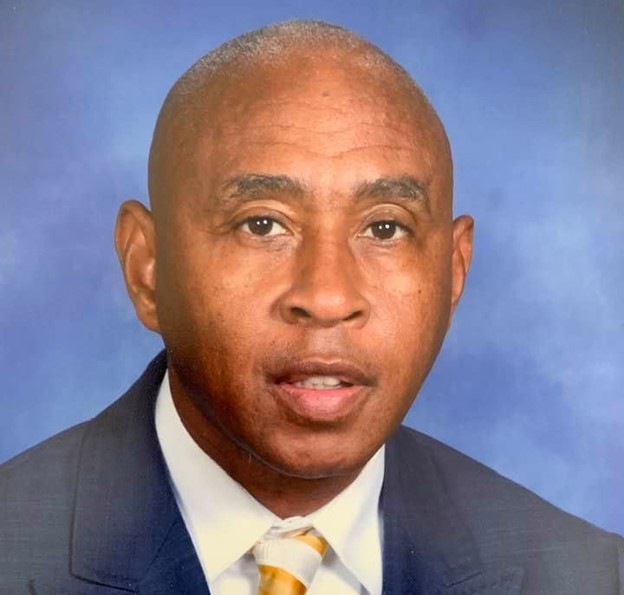
Alabama Democrats saw disappointing results in Tuesday’s election as the party continues to struggle to find its footing after the defeat of former U.S. Sen. Doug Jones. Democratic candidates in statewide races were held to about 30% of the vote on Tuesday, about 10 percentage points lower than four years ago, in an election noted for low voter turnout and a lack of competitive races at the top of the ticket “We’ve got to debrief, regroup and call our troops together. So, we’ll strategize and go on from here,” Alabama Democratic Party Chairman Randy Kelley said in a telephone interview. “I’m still optimistic despite being disappointed that our candidates didn’t win. We had some wonderful people running … But on the other hand, we’ve got some homework to do.” Voter turnout on Tuesday was an estimated 38.5%, according to unofficial returns. Democratic gubernatorial candidate Yolanda Flowers, who carried only 29% of the vote against Republican Gov. Kay Ivey after a poorly financed, shoestring campaign, said many voters didn’t realize her status as the first Black female to win a major party’s nomination for the office in Alabama. Speaking at a small gathering of supporters on election night, she told reporters some of the blame lies with the Alabama Democratic Party. “My team, they shared with me there was some hurt,” said Flowers, a longtime educator and political novice who made frequent mention of her Christian faith. “I wasn’t acknowledged as the candidate, the one to represent the state or the party.” Flowers said she received donations from some local Democratic groups, but her only real support from the state organization was contact with its vice chair, Tabitha Isner. Describing both the Democratic and Republican parties as “messed up,” Flowers said she plans to run for governor again in four years and won’t do anything differently. Her main purpose, she said, is “to keep God at the forefront.” The party has been through a power struggle in the past several years, as well as recent internal squabbling. Kelley this week sent party leaders a memo accusing Isner of overstepping her role. The Alabama Democratic Party’s Twitter account has been silent since August, when leadership changed hands. The party’s Youth Caucus wrote in a tweet this week that, “Alabama Democratic Party Leadership are fighting like 2-year-olds.” The Deep South was once the Solid South for the Democratic Party. But Alabama and other Southern states shifted to Republican control as white Southerners increasingly flocked to the GOP in a trend largely set in motion by the civil rights movement more than 50 years ago. Beleaguered Alabama Democrats were heartened by Jones’ 2017 victory in a special election. But the win did not translate to other gains. A slate of Democratic candidates were held to about 40% of the vote in 2018. Jones was defeated in 2020. Democrats on Tuesday were able to flip a legislative seat for the first time since 2010. Attorney Phillip Ensler defeated Republican incumbent Charlotte Meadows to win the Montgomery House seat. However, that win was tempered by the loss of longtime Democratic incumbent Dexter Grimsley to Republican challenger Rick Rehm in a southeast Alabama district. Both wins were aided by changes to district lines during the last redistricting process. Democratic hopes to pick up additional legislative seats did not materialize. Lisa Ward, who unsuccessfully challenged Republican incumbent Sen. Gerald Allen for the district that includes both the University of Alabama and rural west Alabama, said she remains optimistic. “You can’t give up because they say it’s a red state,” Ward said. She said she ran to bring attention to rural Alabama, and she said people in need don’t care about the party’s internal squabbles. “All they know is their water is brown, and they can’t pay rent, and their grocery tax is too high,” Ward said.
Tommy Tuberville honors veterans

In recognition of Veterans Day, U.S. Senator Tommy Tuberville honored seven veterans from across Alabama that the Senator recognized by telling their stories of service, sacrifice, and contribution to their communities. Tuberville highlighted the service and sacrifice of seven veterans from Alabama. These are Sergeant Chris Amacker from Slapout, Officer Eric Prewitt from Havana, Lieutenant Colonel Jeff Wishik from Madison, Sergeant Janet Pray from Geneva, George Hamilton from Pleasant Grove, Sergeant Lonnie Phillips from Pell City, and Sergeant Dave Jensen from Foley. “In 1945, a World War II veteran named Raymond Weeks from Birmingham, Alabama —recognized the need for a day to honor ALL veterans,” Tuberville said. “He led the petition to then-Army Chief of Staff Dwight Eisenhower for a National Veterans Day and organized the first Veterans Day Parade in Birmingham on November 11, 1947. In 1954, President Dwight D. Eisenhower signed a bill officially establishing ‘Veterans Day.’” Today Veterans Day is a state and national holiday. Banks, government offices, post offices, courthouses, most schools, and many businesses will be closed today. “It is fitting that the ‘Father of Veterans Day’ was an Alabamian – symbolizing a longstanding tradition among our residents to recognize and show appreciation for our veterans and service members,” Tuberville said. “Every year, we continue this tradition of pausing to recognize our veterans—past and present. Veterans Day reminds us that freedom is a sacred gift—and it is not free. Some endured unthinkable battles and hardships so that we can live in peace.” The Veteran’s Day Parade in Birmingham today will begin at 11:00 am. “These veterans—Chris Amacker, Eric Prewitt, Jeff Wishik, Janet Pray, George Hamilton, Lonnie Phillips, and Dave Jensen—are all heroes,” said Tuberville. “Our country is safer because of their efforts, and Alabama’s communities are better off because of their continued service. Their sacrifices— whether loss of mobility, time spent away from family, post-war trauma, or the most vibrant years of their youth— demonstrate America’s strength to the world. President Ronald Reagan summed it up best when he said, ‘Veterans know better than anyone else the price of freedom, for they’ve suffered the scars of war. We can offer them no better tribute than to protect what they have won for us.’ I hope we will remember the price of freedom and those who have paid it. To all of our veterans, thank you for your sacrifice and endeavors to ensure America remains a country of freedom and opportunity for generations to come.” “Like Sergeant Chris Amacker of Slapout, Alabama, a gun truck commander in the Army’s 465th Transportation Unit, where he moved ammo and equipment during the Iraq War,” Tuberville said. “His military service was cut short after suffering brain and spinal injuries following an explosive attack on his unit. Sergeant Amacker spent more than a year in an Arkansas rehabilitation facility, relearning how to walk and talk.” “There is no more commendable action than using skills learned in the military to help others succeed, like Officer Eric Prewitt from Havana, Alabama, does, day in and day out,” Tuberville said. “A graduate of Hale County High School, Officer Prewitt enlisted in the U.S. Navy in 1992, where he served as a Yeoman Second Class. Officer Prewitt felt led to return to West Alabama after his time in the military and use his skills to assist veterans wishing to use their GI Bill benefits. In 2005, he became the Veterans Affairs Officer and Diversity Liaison at Shelton State Community College in Tuscaloosa, Alabama. When speaking about his job, Officer Prewitt shared how the military invested in him and that he wants to continue investing in our service members and veterans. His role is a huge benefit to not just West Alabama but our entire state.” “Some service members were not well-received upon their return to American soil. They fought a thankless war without feeling supported, but still fought out of devotion to their country,” Tuberville stated. “Born in Montgomery, he was commissioned as a second lieutenant in the U.S. Army through Marion Military Institute’s early commissioning program. Wishik deployed to Vietnam with the 101st Airborne Division, directed to find and engage enemy forces.” “While scouting for a landing zone for a helicopter to evacuate them, Lieutenant Wishik was struck by numerous enemy attacks, including one explosion that blew him into the air, knocked him unconscious, and killed all but three in his scouting group,” Tuberville continued. “After he and the two other soldiers realized they were outnumbered and unable to turn back, they spent the night pretending to be dead to avoid being captured by the enemy. Lieutenant Wishik’s wise reminder to Americans based on his experience is that ‘You may not agree with the politics of the country, but you don’t take it out on American service members.’” “The call to serve may run in the family – where, for some veterans, the lessons and values learned in military service are worth passing on generation to generation. This is the case for Sergeant Janet Pray of Geneva, Alabama, who served in the U.S. Army from 1989-2003,” Tuberville continued. “After retiring from the Army, Sergeant Pray continued supporting the Department of Defense in various roles, including as an administrative assistant at Fort Rucker. Her love for education and empowering the next generation prompted her to become a substitute teacher and aide for the Geneva City Schools System. Her encouragement and tenacious spirit has touched the lives of countless students and teachers. Sergeant Pray says the military taught her to lead by example and be responsible for her own actions—lessons she continues to pass on. People like Sergeant Pray keep the American dream alive by inspiring others to take advantage of opportunities our country has to offer and leading by example.” “For veterans like 100-year-old George Hamilton of Pleasant Grove, the idea of ‘service’ has no age limit. The World War II Navy veteran participates in different events around Jefferson County to share his story and is active in his local congregation at Bethel Baptist Church,” Tuberville continued. “Mission work is a huge part of his life. He has been on eleven trips to Nicaragua and is planning to go again soon. Mr. Hamilton says his only regret about his
Katie Britt eyes Senate win in Alabama, faces Will Boyd, John Sophocleus
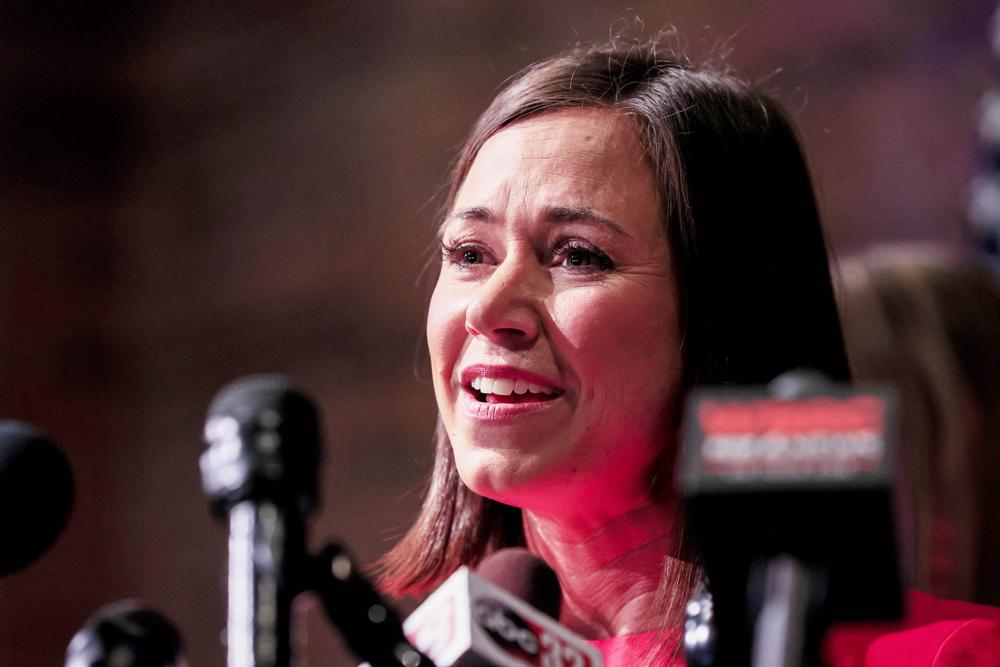
Republican Katie Britt is looking to become the first woman elected to the U.S Senate from Alabama as she seeks to capture the seat opened by the retirement of GOP Sen. Richard Shelby. Britt faces Democratic nominee Will Boyd and Libertarian John Sophocleus in Tuesday’s race for the rare open Senate seat in Alabama. Shelby, 88, is retiring after serving six terms in the U.S. Senate. Britt is Shelby’s former chief of staff and the former leader of the Business Council of Alabama, a business lobby. If elected, Britt will become the first woman to win election to the U.S. Senate from Alabama and will be the first Republican woman to hold one of the state’s Senate seats. The state’s previous female senators, both Democrats, had been appointed. Britt, who won the GOP nomination after a hard-fought primary, has raised more than $10 million in the course of her Senate campaign. Boyd has raised $105,000, and Sophocleus did not raise enough funds to require filing a campaign finance report. Boyd is the presiding bishop of Zion Ministries and pastor of St. Mark Missionary Baptist Church —a 162-year-old church in Florence, Alabama. He was the Democratic nominee for lieutenant governor four years ago but lost to Republican Will Ainsworth. Boyd captured about 38% of the statewide vote in the 2018 lieutenant governor’s race. Boyd also ran for the Senate in 2017 but lost the Democratic primary to Doug Jones, who went on to become the first Alabama Democrat elected to the U.S. Senate in a quarter of a century. Jones was the last Democrat to win statewide office in Alabama but lost his reelection bid in 2020 to Republican Tommy Tuberville. Sophocleus is a former economics instructor at Auburn University. The Libertarian candidate’s platform includes the abolishment of federal gun laws and expanded use of initiative and referendum. Libertarians are back on the ballot in Alabama after a 20-year-absence. Party leaders secured the needed signatures to get their candidates on the ballot for the first time since 2002. Republished with the permission of The Associated Press.
Republicans are hoping for another sweep in 2022 election
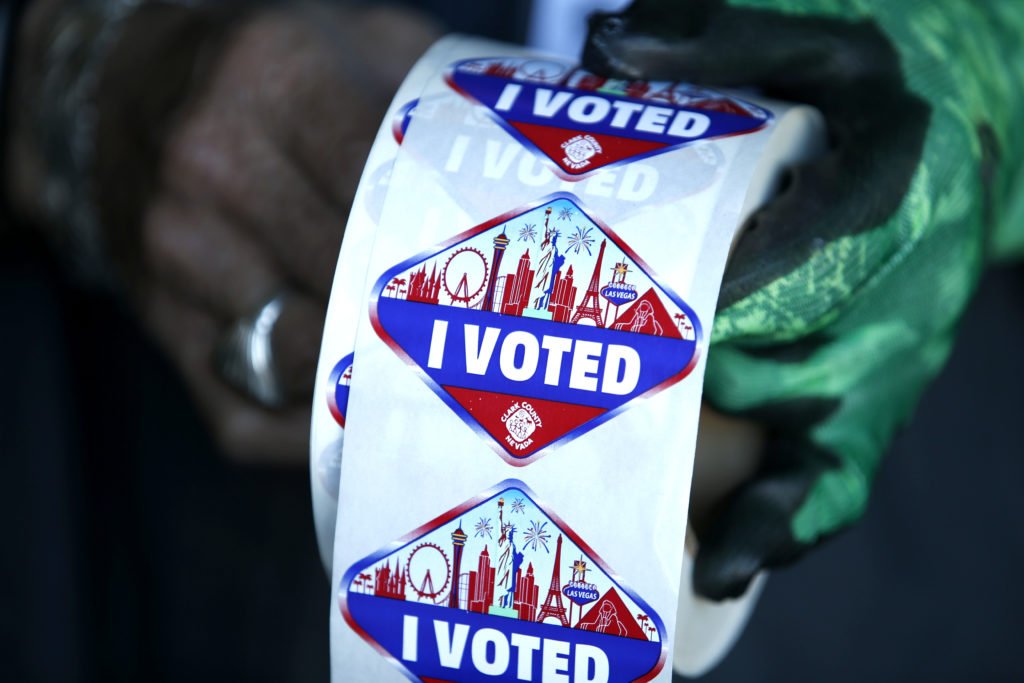
On Tuesday, Alabama voters are going to the polls to elect new leaders for the state. The Alabama Republican Party is hoping to see history repeat itself again in this election, and they will maintain their dominant position in Alabama politics. “Just a reminder that if you are tired of sky-high gas prices, out-of-control inflation, and rising crime, you have a choice. Vote Republican tomorrow on Election Day,” the Alabama Republican Party wrote on Facebook Monday. Alabama Republicans hope that this election follows the script of recent Alabama elections. In 2010, the Alabama Republican Party won every statewide office on the ballot. U.S. Senator Richard Shelby was easily re-elected to another term. Republican nominee for Governor, State Rep. Robert Bentley, defeated his Democratic opponent Ag Commissioner Ron Sparks. Then Treasurer Kay Ivey defeated incumbent Lieutenant Governor Jim Folsom in a race that even most Republicans at the time thought was a long shot. The people of Alabama, however, had grown tired of Alabama Education Association-dominated Democrats and found President Barack Obama’s policies too liberal for Alabama. National voters agreed, and 2010 was a massive “red wave” election that gave Republicans control of both Houses of Congress. In Alabama, Republicans won supermajorities in both Houses of the Alabama Legislature after 135 years of Democratic domination of the state legislature. In 2014 Bentley, Ivey, and the rest of the Alabama GOP were back. Bentley faced former Congressman Parker Griffith, and Ivey faced former State Rep. James Fields. Democrats viewed the 2014 election as so hopeless that they did not even find a candidate to run against popular U.S. Sen. Jeff Sessions. The Alabama voters once again rewarded Republicans with every statewide office on the ballot, and they grew their supermajorities in both Houses of the Legislature. In 2018, Bentley was gone, and Ivey had been elevated to Governor. Shelby was reelected to a sixth term in 2016. Democrats, however, were optimistic because their nominee for U.S. Senate, Doug Jones, had just defeated the Republican nominee, former Chief Justice Roy Moore in a special election. It had been the first win for an Alabama Democrat in a statewide race since 2008. Speaker of the House Mike Hubbard, who had masterminded the Republican campaigns in 2010 and 2014, had been convicted of corruption in 2016 (he is still in prison to this day). None of that mattered. Ivey easily bested her Democratic opponent, Tuscaloosa Mayor Walt Maddox. In the Lieutenant Governor’s race, State Rep. Will Ainsworth defeated his Democratic opponent, Florence Pastor Dr. Will Boyd. The Republicans also grew their supermajorities in the state legislature. Former Auburn head football coach Tommy Tuberville beat Sen. Jones in a landslide in 2020, so once again, there is no statewide Democratic officeholder in Alabama. On Tuesday, Ivey is seeking her second full term as governor. This time she faces political newcomer Yolanda Flowers and a Libertarian – Dr. James “Jimmy” Blake. Ainsworth faces Libertarian Ruth Page Nelson. Democrats failed to run a Lt. Gov. candidate. Shelby is retiring after 36 years in the Senate and 52 total years in office. His former Chief of Staff, Katie Britt, is the Republican nominee for Senate. She faces Boyd and Libertarian John Sophocleus. This is the first election since 2002 where there are Libertarians on the Alabama ballot. There are a lot of parallels between the 2022 election and the 2010 election. Once again, Democrats control both Houses of Congress and an unpopular Democratic Presidential incumbent, former Obama VP Joe Biden, is in the second year of his presidency. Many political analysts are predicting that Tuesday will be a second “red wave” election, like 2010, that will sweep Democrats out of office and give Republicans control of both Houses of Congress again. Alabama Republicans are hoping this is true of Alabama as well, and the GOP will retain its almost total mastery of Alabama politics. That is for the voters of Alabama to decide. Polls will open at 7:00 am and close at 7:00 am. Voters need to bring a valid photo ID with them to the polls. Various forms of photo ID are acceptable. To connect with the author of this story, or to comment, email brandonmreporter@gmail.com.

